Where is it *conditionally* convergent? En=1 vn2+3 +1 a) i only.
Which Of The Following Series Converge. When the above fraction is equal to 1, we cannot us. Which of the following series converge? En=1 vn2+3 +1 a) i only. This will converge to 0 when n^p increases monotonically to infinity, which will happen exactly when p > 0.
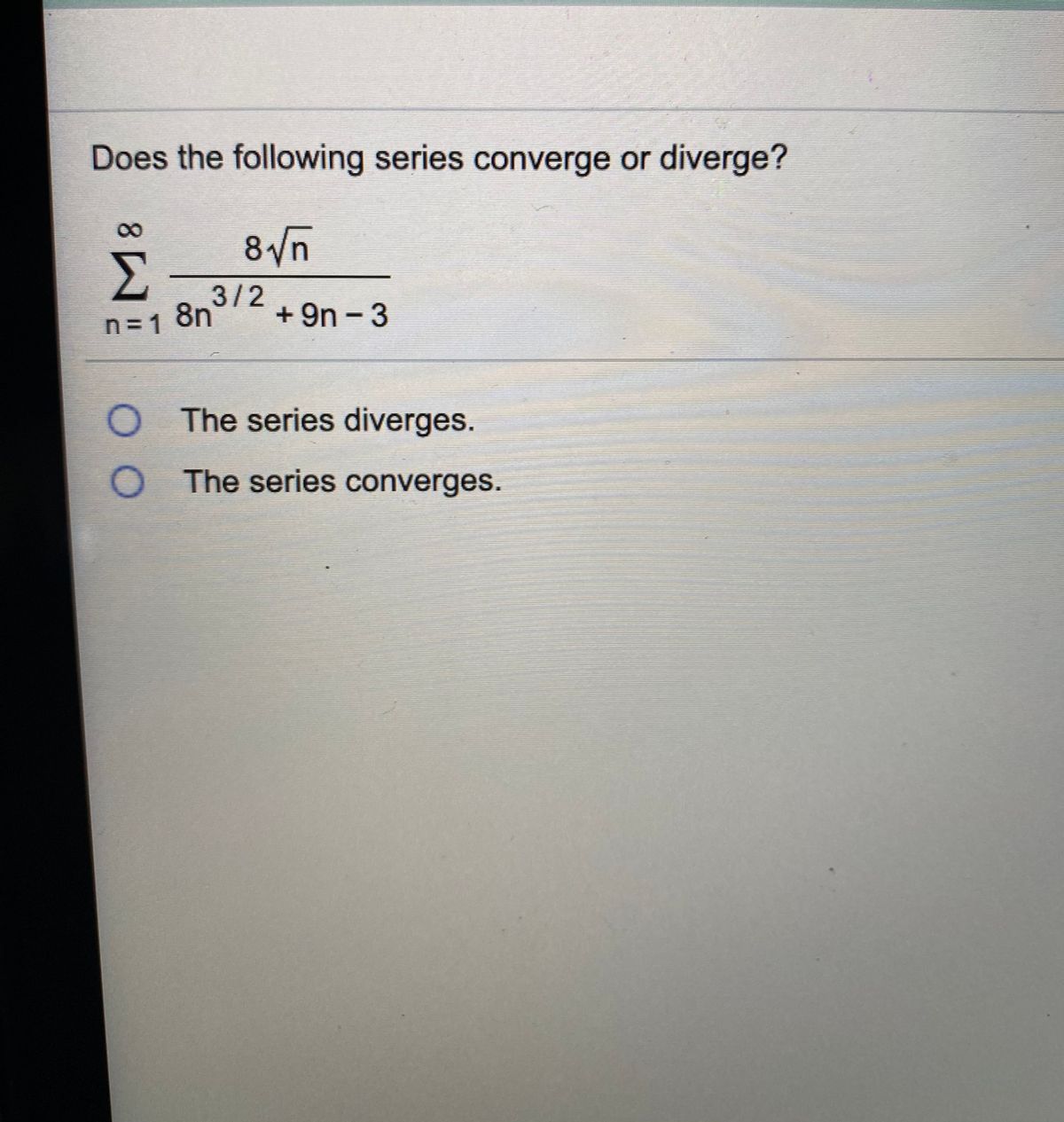 Answered: Does The Following Series Converge Or… | Bartleby From bartleby.com
Answered: Does The Following Series Converge Or… | Bartleby From bartleby.com
Related Post Answered: Does The Following Series Converge Or… | Bartleby :
(b) the series converges conditionally. N2 n=2n3+1 ∞ ∑ cos(πn) n=2n ∞ ∑ Which of the following series converge? E.the test cannot be applied to an = 3 4 n+6n 4 and bn = 3 4.
10.the radius of convergence for the series ¥ å n=0 n2xn 10n is a.1 b.1/10 c.
Which of the following series converge? \sum_ {n=1}^ {\infty }\frac {1} {7^ {n}} c. Which one of the following series is convergent? We have learned that if a series converges, then the summed sequence�s terms must converge to 0. ¥ page 5 of 10 It is important because of the following result:
 Source: slideplayer.com
Source: slideplayer.com
Thus, let�s look at the second function. The series ∞ i=1 a i is said to converge absolutely if the series of the absolute values of the terms ∞ i=1 |a i|=|a 1|+|a 2|+··· converges. If a series converges absolutely then it converges.
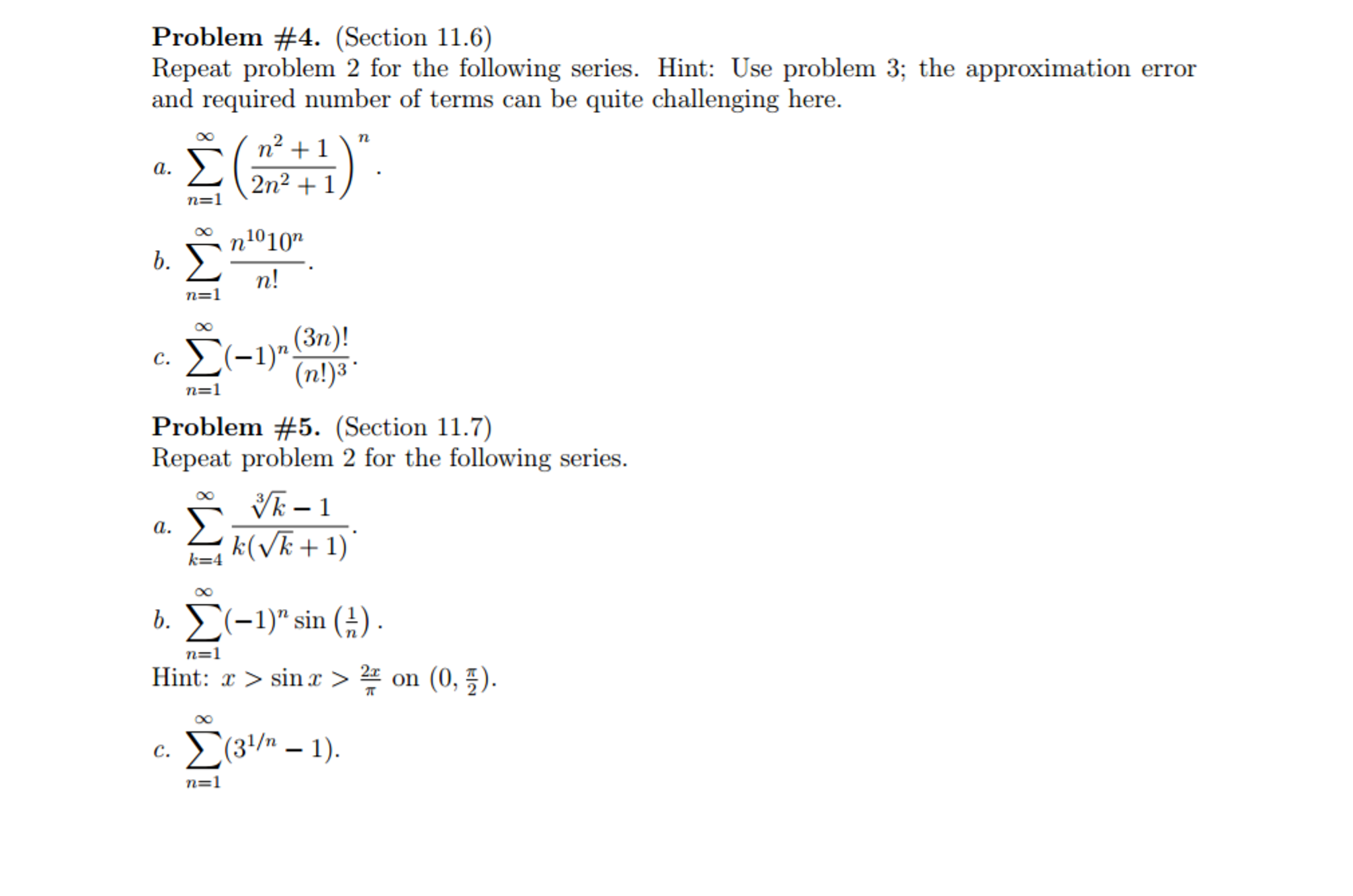 Source: chegg.com
Source: chegg.com
Lim n → ∞ 4 n − 1 5 n + 1 =? If a series converges absolutely then it converges. N=1 ∞ 1 n 3 + n diverges because n=1 ∞ 1 n 3 + n < n=1 ∞ 1/n which diverges (p = 1:
 Source: chegg.com
Source: chegg.com
Thus, let�s look at the second function. The limit of the sequence terms is, lim n → ∞ n ( n + 1) 2 = ∞ lim n → ∞ n ( n + 1) 2 = ∞. For the convergent series, if possible, find their exact value;
 Source: youtube.com
Source: youtube.com
Numerical series test calculator allowed score. (calculator not allowed) which of the following series can be used with the limit comparison test to determine whether the series n n3 1 n 1 converges or diverges? Give reasons for your answers.
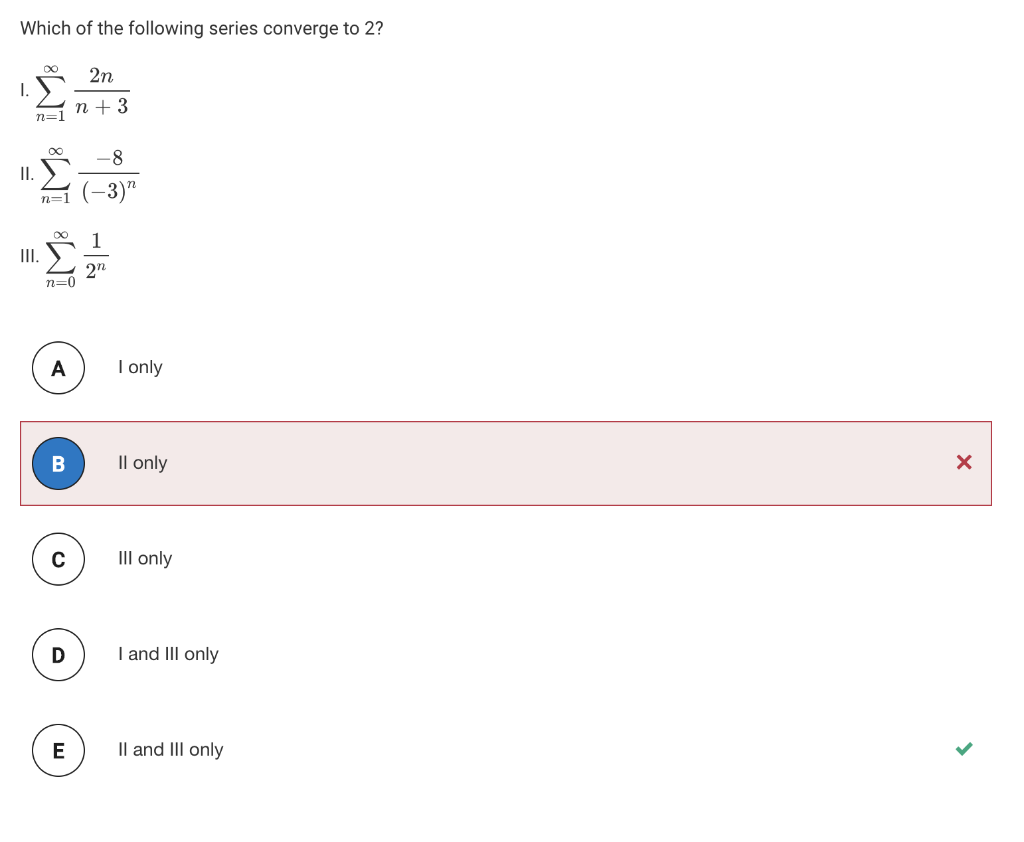 Source: chegg.com
Source: chegg.com
Which one of the following series is convergent? (c) the series converges but neither conditionally nor absolutely. Show transcribed image text expert answer.
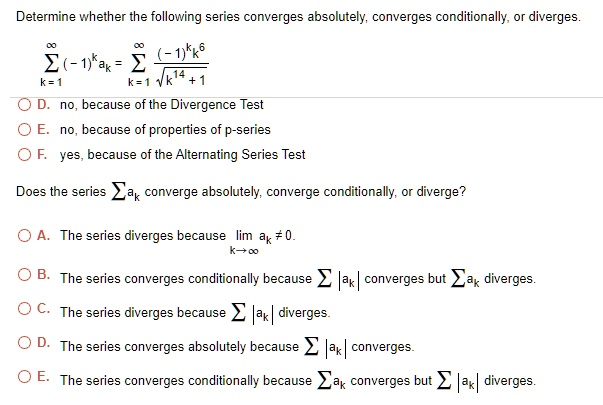 Source:
Source:
See the answer see the answer done loading. We have learned that if a series converges, then the summed sequence�s terms must converge to 0. Try numerade free for 7 days.
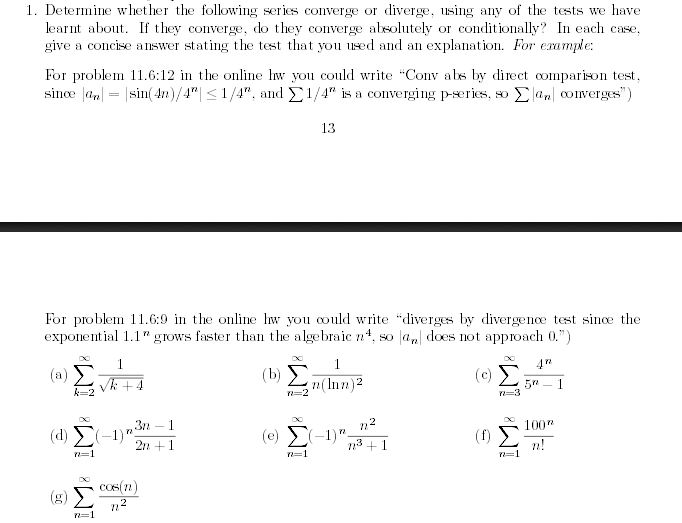 Source: chegg.com
Source: chegg.com
Which of the following series converge? Which of the following series converge? The sequence does not converge to 0.
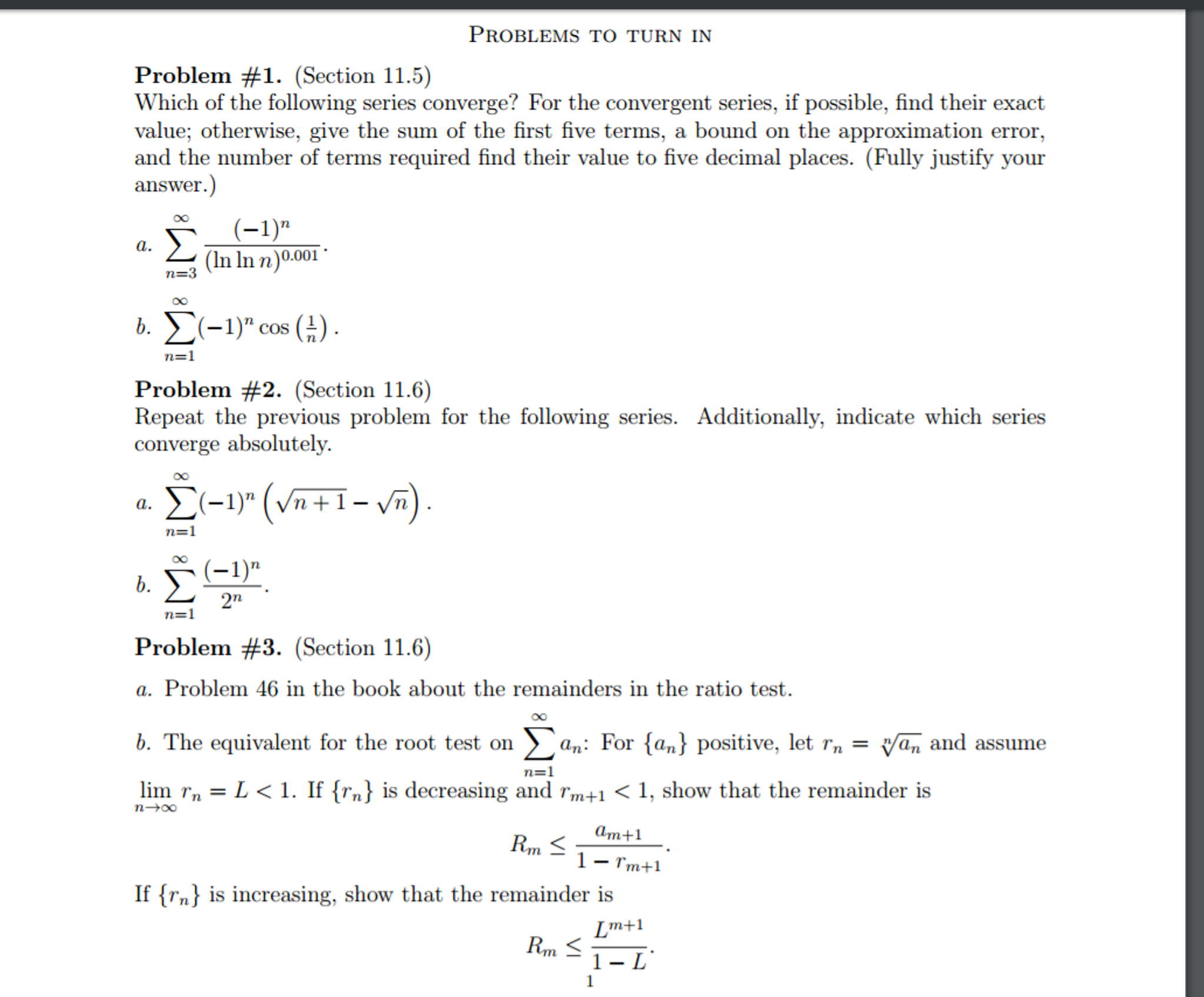 Source: chegg.com
Source: chegg.com
(a) the series converges absolutely. Does the series diverge, converge conditionally, or converge absolutely? Which of the following series converge?
 Source: oneclass.com
Source: oneclass.com
The nth term for divergence states that if lim n → ∞ a n does not exist, or if lim n → ∞ (a n ≠ 0), then the series ∑ n = 1 ∞ (a n) is divergent. The summation from n equals 1 to infinity of 1 over n raised the the one fourth power c. Match the following series with the series below in which you can compare using the limit comparison test.
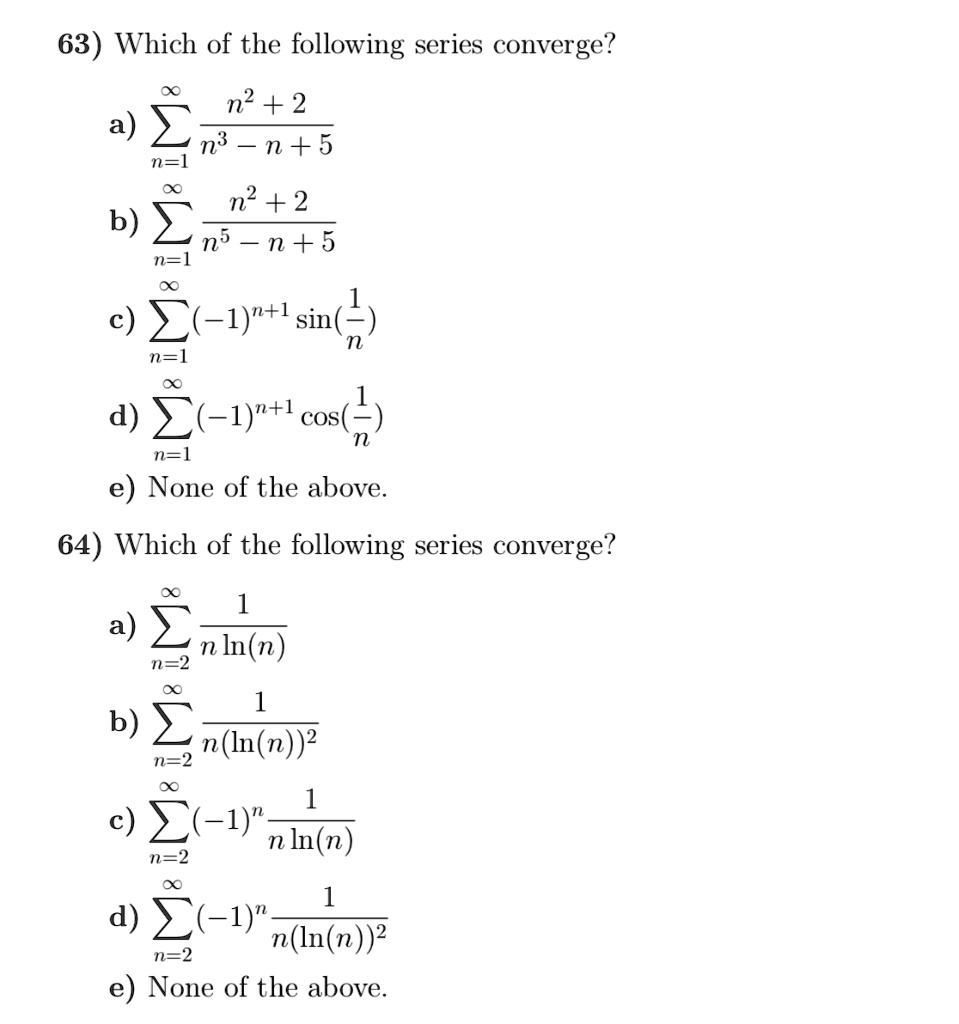 Source: itprospt.com
Source: itprospt.com
Try numerade free for 7 days. (a) ∑ ∞ n =2 1 √ n log(n). Numerical series test calculator allowed score.
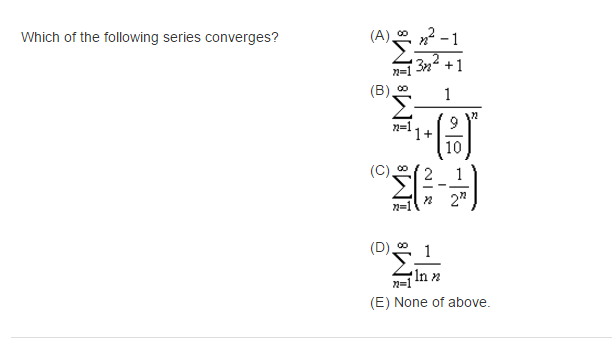 Source: chegg.com
Source: chegg.com
En=1 vn2+3 +1 a) i only. (calculator not allowed) which of the following series can be used with the limit comparison test to determine whether the series n n3 1 n 1 converges or diverges? Lim n → ∞ 4 n − 1 5 n + 1 =?
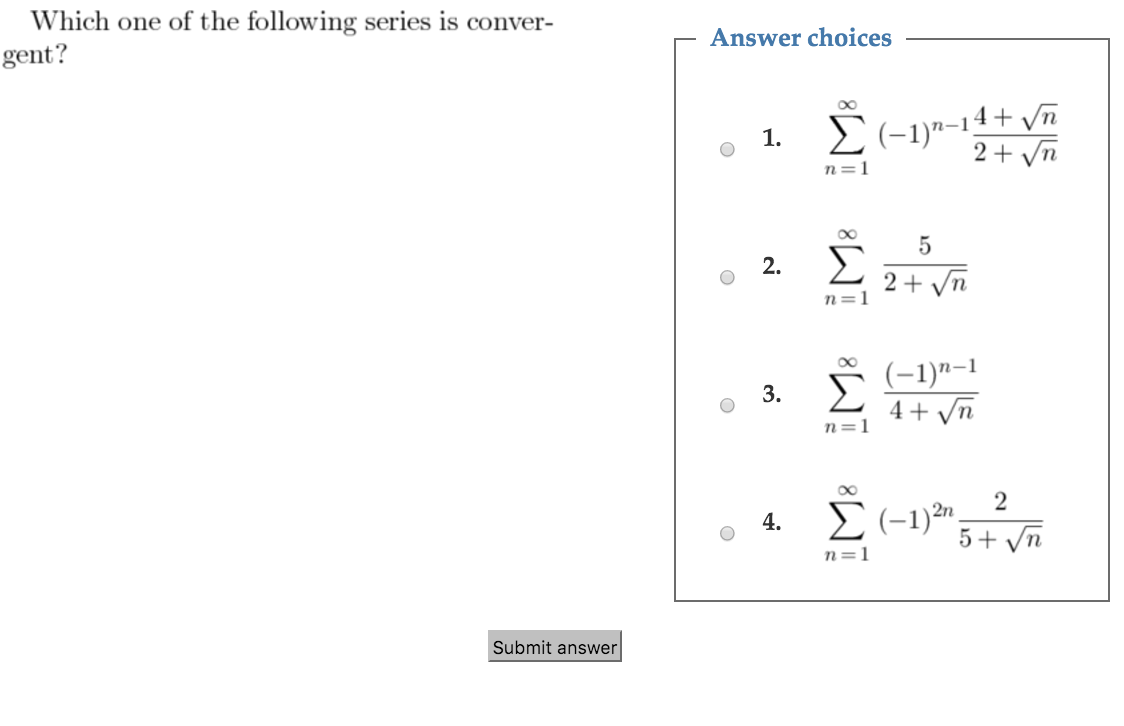 Source: chegg.com
Source: chegg.com
Which of the series converge absolutely, which converge conditionally, and which diverge? See the answer see the answer done loading. So, for p > 0, by the alternating series test, the series will converge.
 Source: seriestestmjs.weebly.com
Source: seriestestmjs.weebly.com
Which of the following series converge? Then determine whether the series converge or diverge. The sequence does not converge to 0.
 Source: bartleby.com
Source: bartleby.com
\sum_ {n=1}^ {\infty }n^ {4} b. Match the following series with the series below in which you can compare using the limit comparison test. Lim n → ∞ 4 n − 1 5 n + 1 =?
![Solved]: Which Of The Following Series Converge? 2 _2 2 =](https://media.cheggcdn.com/study/90d/90dbc305-ff66-4829-915d-d75526e114a0/image “Solved]: Which Of The Following Series Converge? 2 _2 2 =") Source: answerparks.com
Since an infinite geometric series converges iff $;|r|<1;$ , with $;r=$ the series fixed ratio, the first given series already tells you that the first three options are false. Ln=13 which of the following series converge? Basically, the substitution makes this exactly the same as considering ∑ 1 n p by the integral test.) 15.4 determine which of the following series converge:
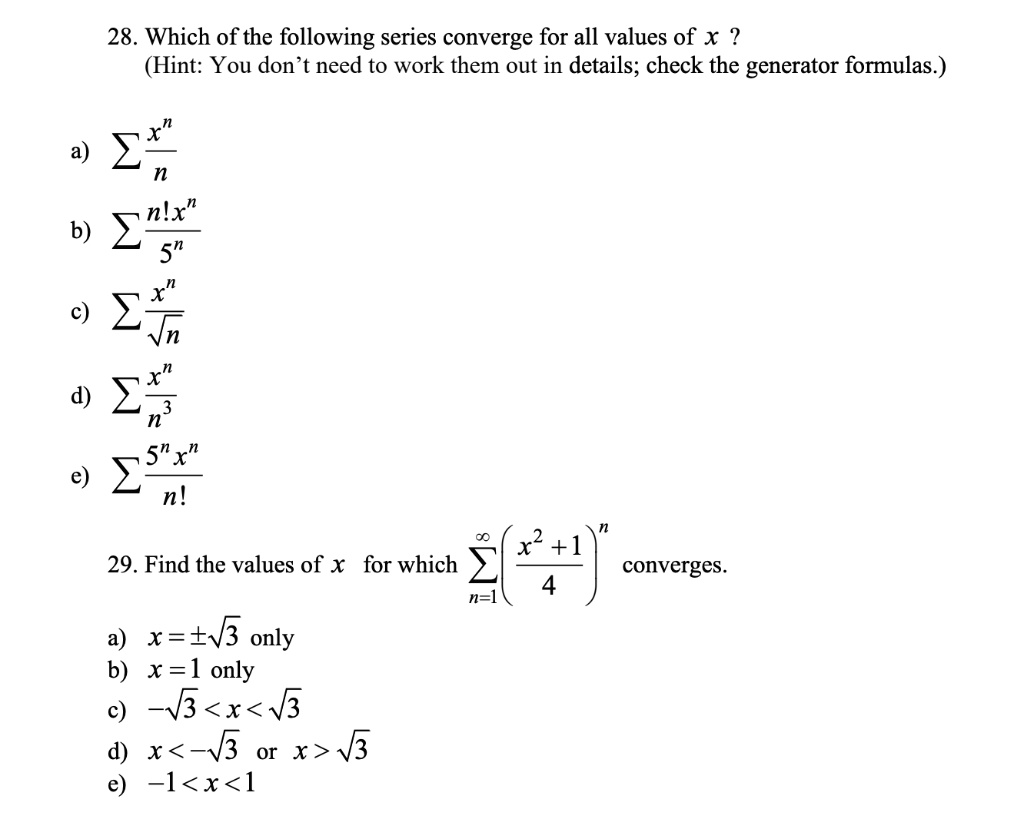 Source: numerade.com
Source: numerade.com
We review their content and use your feedback to. Which of the following series converge? (c) the series converges but neither conditionally nor absolutely.
 Source: homeworklib.com
Source: homeworklib.com
This is an alternating series and is convergent. Which of the following series converge conditionally? Get the answer to your homework problem.
 Source: slideplayer.com
Source: slideplayer.com
The sequence does not converge to 0. For the convergent series, if possible, find their exact value; Otherwise, give the sum of the first five terms, a bound on the approximation error, and the number of terms required find their value to five decimal places.
 Source: chegg.com
Source: chegg.com
The summation from n equals 1 to infinity of 1 over n raised the the one fourth power c. Does the series diverge, converge conditionally, or converge absolutely? Which of the following series converge?
Also Read :





